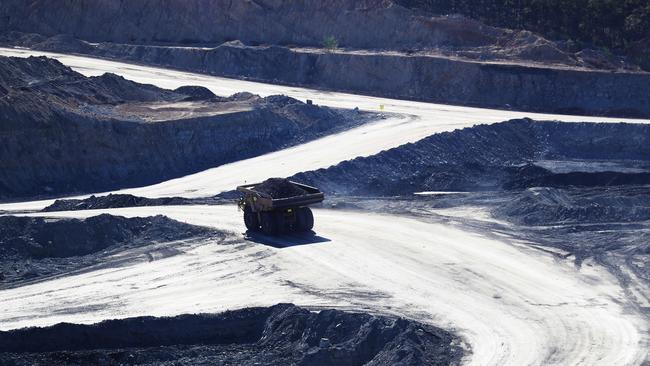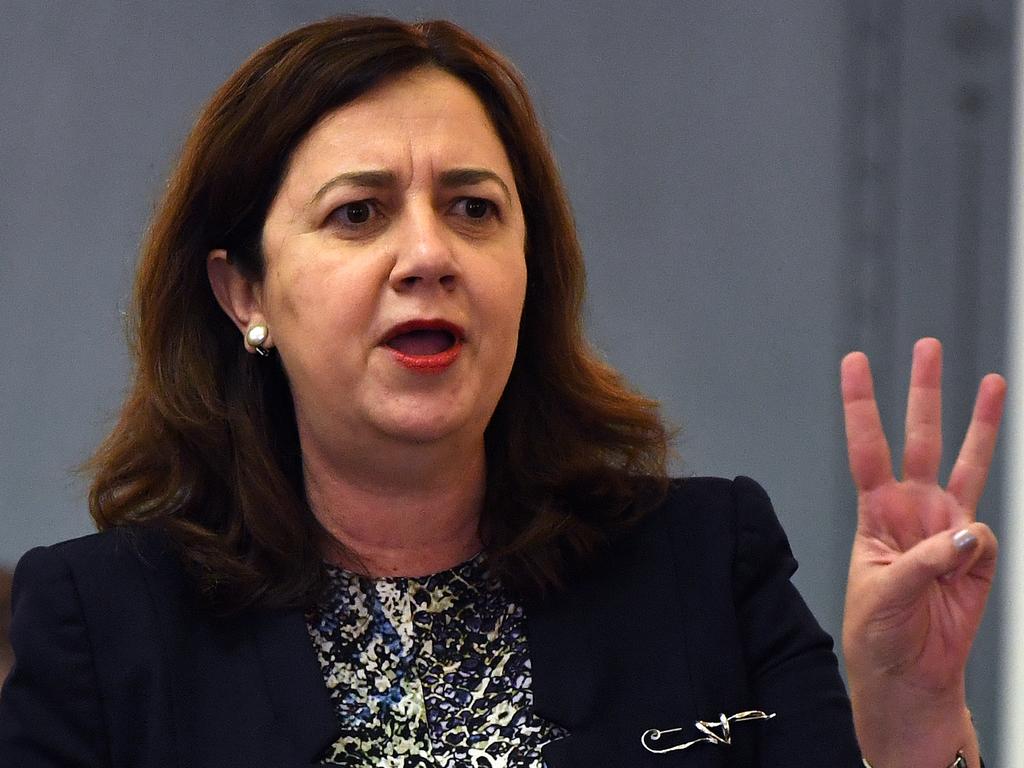NSW law to shield coal mine projects from emissions concerns
NSW will introduce laws to stop greenhouse gas emissions being used as a reason to prevent its mines being approved.

The NSW government plans to introduce laws putting an end to international greenhouse gas emissions being used as a reason to prevent its mines being approved, igniting tensions with green groups critical of the state’s attitude towards climate change.
Deputy Premier and Resources Minister John Barilaro said the legislation to be introduced to parliament this week would mean Scope 3 emissions, which cover emissions outside of Australia from customers using commodities like coal, would not be taken into account for local mining approvals.
The move was sparked after the Rocky Hill coking coal mine planned for NSW’s Hunter Valley was rejected in February when the state’s Land and Environment Court cited the “dire consequences” of the coal project on global pollution levels.
The judgment — which shocked the nation’s resource owners — marked the first time an Australian court has rejected an approval for a coal mine due to its impact on global warming.
“These changes will help restore NSW law and policy to the situation that existed prior to the Rocky Hill decision and will provide the mining sector with greater certainty,” Mr Barilaro said.
The NSW government has “no way to enforce conditions relating to development outside Australia” and had moved quickly to resolve the issue, he added.
MORE NEWS:
St George raises $5m to boost nickel push
Classified Queensland plan to close down coalmining
Green energy set to power WA mining hub
The proposal follows an official government review announced on the weekend into the future of the powerful independent Planning Commission.
The review was triggered after the IPC approved the Rix Creek coal mine earlier in October before public submissions had closed and follows the Bylong coal mine being rejected by the state’s planning commission due to “problematical” concerns on climate change and fears over long-lasting groundwater and agricultural damage.
Green groups were quick to blast the move by Mr Barilaro with the Environmental Defenders Office calling it a “dark day” for the state.
“NSW going backwards on #climate action with plans to introduce retrograde legislation to frustrate decision makers ability to consider climate change on way,” EDO chief executive David Morris said on Twitter.
“Matt Kean is the only MP standing up in current government, but seemingly can’t get traction. Dark day.”
Activist group Lock The Gate said the decision was “a terrible mistake that will be remembered by future generations.”
However, major mining lobby groups from the Minerals Council of Australia through the NSW Minerals Council applauded the decision.
“Regulatory creep and overreach — including the use of regulation by unelected bodies to block mining projects and the jobs and prosperity they bring to regional communities — is a serious concern in the regulation of the minerals sector across Australia,” Minerals Council of Australia chief executive Tania Constable said. “The MCA has previously urged the NSW government to take action on this important issue.
Its NSW counterpart also backed the Resources Minister’s call. “The NSW Minerals Council supports the Paris Agreement and Australia’s efforts to meet nationally determined Paris Agreement commitments on emissions reductions,” chief executive Stephen Galilee said.
“However, increasing uncertainty on how ‘Scope 3’ emissions are treated within the NSW planning assessment system has become a significant barrier to investment in NSW and a real threat to jobs and the economy, particularly in regional NSW.”




To join the conversation, please log in. Don't have an account? Register
Join the conversation, you are commenting as Logout